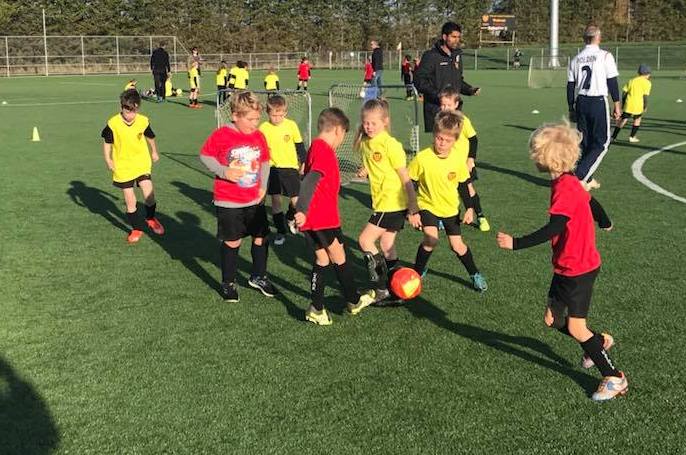
Mainland Football introduces new ‘mercy’ rule

Mainland Football has introduced a new rule and guideline to junior/youth competitions to help develop young players.
The ‘mercy’ rule is an agreement between all coaches that when a match is becoming too one-sided they will discuss ways to make the match more even. This is often done by adding more players to the losing team or mixing the teams up at halftime.
The rule was launched in junior/youth football competitions at the start of this season – a way to provide equal competition for young players and reduce the rising number of one-sided matches. The published result will also show a max goal difference of nine goals.
Mainland Football development officer Alan Walker said he noticed an issue with the grading process when many early grading games resulted in blow-outs, which affected the development of players on winning and losing teams.
“There’s two extremes that happen when you have too many one-sided matches. The team that’s winning don’t improve beacuse they get sloppy in their habits which stops their development and then for the opposition, the players dont get enthused by the game and it’s a turn off.”
Walker said the guidelines were about making sure children of all abilities can play in matches that are competitive and enjoyable.
“You can imagine it can be really miserable for a player at junior or youth level when they’re involved in a game where they’re having goal after goal put past them. The aim is for all players at all times to end up enjoying their games.”
Mainland Football youth development officer Gary Ogilvie said the response to the rule from coaches and parents had been positive.
“Those that understand the psychological development of youngsters and the learning curve that youngsters go through have backed it and we’d love to see all coaches working together to make the games as enjoyable for as many players as possible if one-sided matches occur.”
Ogilvie stressed that the development of young players at junior level was far more important than who wins and who loses.
“At junior level we don’t really focus on results. Having a fairer competition helps develop the better players anyway, the scoreline doesnt matter at the end of the day, it doesnt influence the players development.”
“Were trying to make it so that every time the kids come out to play football it’s a good competition, they’re enjoying themselves and they go home wanting to come back and play the next week.”
